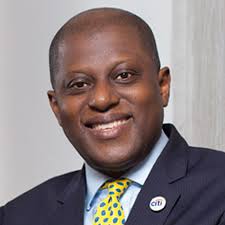Mr Fagbemi while speaking at the opening session of the statutory meeting of the ECOWAS judicial council in Abuja on Tuesday incorrectly claimed that “the judgments delivered by the ECOWAS are practically incapable of enforcement.”
In the statement dated 22 February 2024 and signed by SERAP deputy director Kolawole Oluwadare, the organisation said: “This statement is clearly inconsistent and incompatible with Nigeria’s international legal obligations assumed under the various ECOWAS treaties and protocols to which the country is a state party.”
SERAP said: “It is incorrect to say that the ECOWAS court judgments and orders are unenforceable the same way the Tinubu government cannot plausibly claim the judgments delivered by the Nigerian courts are unenforceable.”
According to SERAP, “This statement is a political attack on the ECOWAS Court which if not immediately withdrawn would undermine the integrity, independence, authority and effectiveness of the court and deny Nigerians access to justice and effective remedies.”
The statement, read in part: “The judgments of the ECOWAS Court, which are final and immediately binding and enforceable, are vital for the realisation of ECOWAS aims and objectives.”
“Rather than making statements to undermine the integrity, independence and authority of the ECOWAS Court, the Tinubu government should demonstrate the political will to immediately enforce all outstanding judgments by the court.”
“President Tinubu is the chairman of the ECOWAS and Nigeria ought to show the leadership to invest in the ECOWAS judicial organ and uphold the various ECOWAS treaties and protocols and propose mechanisms to implement the decisions of ECOWAS Court within the country’s national legal system rather than disparaging the court.”
“SERAP will hold the Tinubu government to account for any breach of its international obligations, including under the ECOWAS treaties and protocols.”
“Like in Nigerian courts, the ECOWAS Court proceedings are practical and its judgments are enforceable as a matter of law and justice. If a litigant before the court cannot have a judgment enforced, then there is no point in establishing a judicial organ for the ECOWAS in the first place.”
“The purpose of the ECOWAS treaties and protocols is to promote cooperation, integration as well as to forge a common front for enhanced economic stability and interdependence between Community States.”
“But the ECOWAS integration agenda will be impossible if Nigeria continues to fail to uphold its international legal obligations, enforce the court judgments and decisions, embrace the rule of law, and strengthen ECOWAS institutions.”
“The enforcement of the court’s judgments is particularly important in the case of individuals whose enjoyment of fundamental human rights, as guaranteed under the ECOWAS treaties and protocols and other human rights treaties to which Nigeria is a state party, is dependent on effective enforcement.”
“It is very clear from the ECOWAS legal instruments that the primary responsibility to enforce and execute the ECOWAS Court’s judgments and decisions lies with member states including Nigeria.”
“This is buttressed by the well-rooted principle of international law pacta sunt sevanda, ie obligations undertaken in international or regional treaties or conventions must be honoured in good faith.”
“Just as the Tinubu government cannot and should not dictate the types of judgments that Nigerian courts should deliver, the government cannot and should not dictate the nature of judgments to be delivered by the ECOWAS Court.”
“The jurisdiction and mandates of the ECOWAS Court are derived from the ECOWAS treaties and protocols to which Nigeria has voluntarily subscribed.”
“By ratifying the ECOWAS treaties and protocols, Nigeria has agreed to obey and enforce all the judgments of the court without any exception.”
“Article 27 of the Vienna Convention on the Law of Treaties, also ratified by Nigeria, provides that a state party may not invoke the provisions of its internal law as justification for its failure to perform its obligations under a treaty.”
“Article 15(4) of the ECOWAS Revised Treaty makes the judgment of the Court binding on Member States, including Nigeria. Also, Article 19(2) of the 1991 Protocol provides that the decisions of the court should be final and immediately enforceable.”
“Article 24 (4) of the 2005 Supplementary Protocol on the Court mandates each Member State to designate a national authority vested with the responsibility of enforcing decisions of the regional court.”
“The court could also refuse to entertain any application brought by the offending member state until such a state enforces the court’s decision. Under international law, when there is a conflict between a state’s domestic laws and its international obligations, the international obligations will prevail.”
“Beyond that, there is a legal obligation on member states to a treaty to repeal or reform their domestic laws and bring such laws in conformity with the state’s international obligations.”
“It is the responsibility of Nigeria to integrate the mechanism of the ECOWAS Court with its domestic laws. No member state of the ECOWAS has the authority to dictate to the Court how to discharge its mandate because the Court is clearly independent.”
“SERAP therefore calls on the government of President Bola Tinubu to immediately withdraw the political attack on the ECOWAS Court and to reaffirm its commitment to upholding the voluntary obligations under the various ECOWAS treaties and protocols to which Nigeria is a state party.”
“SERAP also calls on the Tinubu government to immediately begin to enforce and implement all outstanding judgments of the ECOWAS Court delivered against Nigeria, including the judgment compelling the Nigerian Government to ensure that all Nigerian children enjoy the right to free education.”
“The government must also enforce other judgments such as the judgments awarding N30million as compensation for the ill-treatment of journalist Agba Jalingo, who faced trumped-up and politically motivated charges of treason; and finding the Nigerian government responsible for abuses by oil companies and ordering the government to hold the companies and other perpetrators to account.”
“The Tinubu government must immediately implement and enforce these judgments and other judgments delivered by Nigerian courts.”
“Nigeria’s full and swift compliance with the court’s judgments and decisions is of pivotal importance not only to ensuring the enjoyment of the rights guaranteed under the ECOWAS treaties and protocols but also to alleviating the crisis currently facing the subregion and to securing the integrity and effective functioning of the court.”




